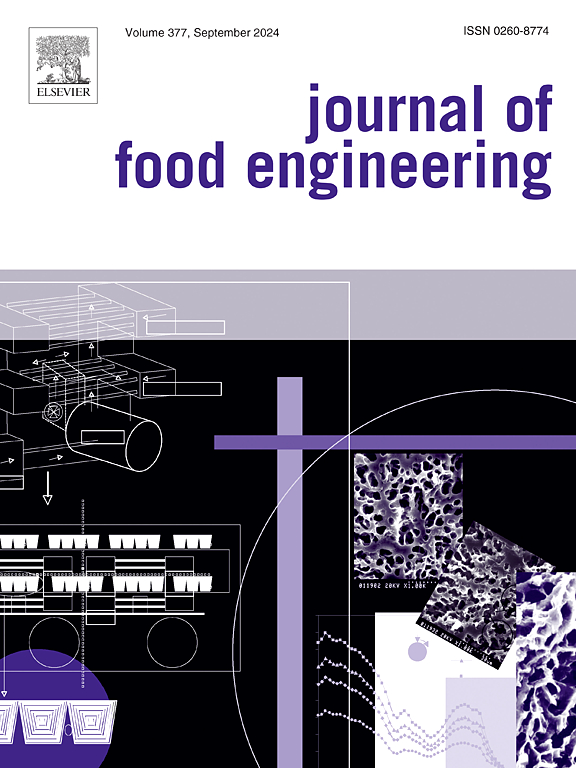木瓜蛋白酶对热诱导蛋黄凝胶胶凝性能和3D打印性能的影响
IF 5.8
2区 农林科学
Q1 ENGINEERING, CHEMICAL
引用次数: 0
摘要
食品3D打印技术由于其个性化制造和精确营养调节的能力,已成为食品加工领域的一个突出研究领域。热致蛋黄凝胶是优质蛋白质和脂质的丰富来源,但热致凝胶的高硬度和低流动性限制了其在3D打印中的应用。本研究采用木瓜蛋白酶对蛋黄蛋白进行酶解,系统考察其对凝胶理化性质和3D打印性能的影响。实验结果表明,酶降解显著降低了蛋黄悬浮液的粒径和ζ-电位,破坏了蛋白质网络结构,降低了凝胶的储存模量和表观粘度。随着木瓜蛋白酶浓度的增加,蛋黄凝胶中游离水和网状孔隙率增加。在酶浓度为0.01-0.02 g/25 g时,凝胶表现出合适的粘弹性和自支撑能力,可以成功打印出结构完整的三维模型。本研究为酶修饰蛋黄基3D打印材料的开发奠定了理论基础,从而推进天然蛋白质资源在智能食品制造中的利用。本文章由计算机程序翻译,如有差异,请以英文原文为准。
Effect of papain on the gelling properties and 3D printability of thermally induced egg yolk gel
Food 3D printing technology has emerged as a prominent area of investigation in food processing due to its capacity for personalized manufacturing and precise nutritional regulation. Heat-induced egg yolk gel serves as a rich source of high-quality proteins and lipids, but its high hardness and low fluidity in thermogenic gels restrict its application in 3D printing. In this study, papain was employed to enzymatically hydrolyze egg yolk proteins, systematically examining its effects on the gel's physicochemical properties and 3D printability. Experimental findings demonstrated that enzymatic degradation significantly reduced the particle size and ζ-potential of the egg yolk suspension, disrupted the protein network structure, and decreased the storage modulus and apparent viscosity of the gels. The proportion of free water and network porosity in yolk gels increased with increasing papain concentration. Optimal results were observed at an enzyme concentration of 0.01–0.02 g/25 g, where the gel exhibited suitable viscoelasticity and self-supporting capability, enabling the successful printing of a structurally intact three-dimensional model. This research establishes a theoretical foundation for the development of enzymatically modified egg yolk-based 3D printing materials, thereby advancing the utilization of natural protein resources in smart food manufacturing.
求助全文
通过发布文献求助,成功后即可免费获取论文全文。
去求助
来源期刊

Journal of Food Engineering
工程技术-工程:化工
CiteScore
11.80
自引率
5.50%
发文量
275
审稿时长
24 days
期刊介绍:
The journal publishes original research and review papers on any subject at the interface between food and engineering, particularly those of relevance to industry, including:
Engineering properties of foods, food physics and physical chemistry; processing, measurement, control, packaging, storage and distribution; engineering aspects of the design and production of novel foods and of food service and catering; design and operation of food processes, plant and equipment; economics of food engineering, including the economics of alternative processes.
Accounts of food engineering achievements are of particular value.
 求助内容:
求助内容: 应助结果提醒方式:
应助结果提醒方式:


